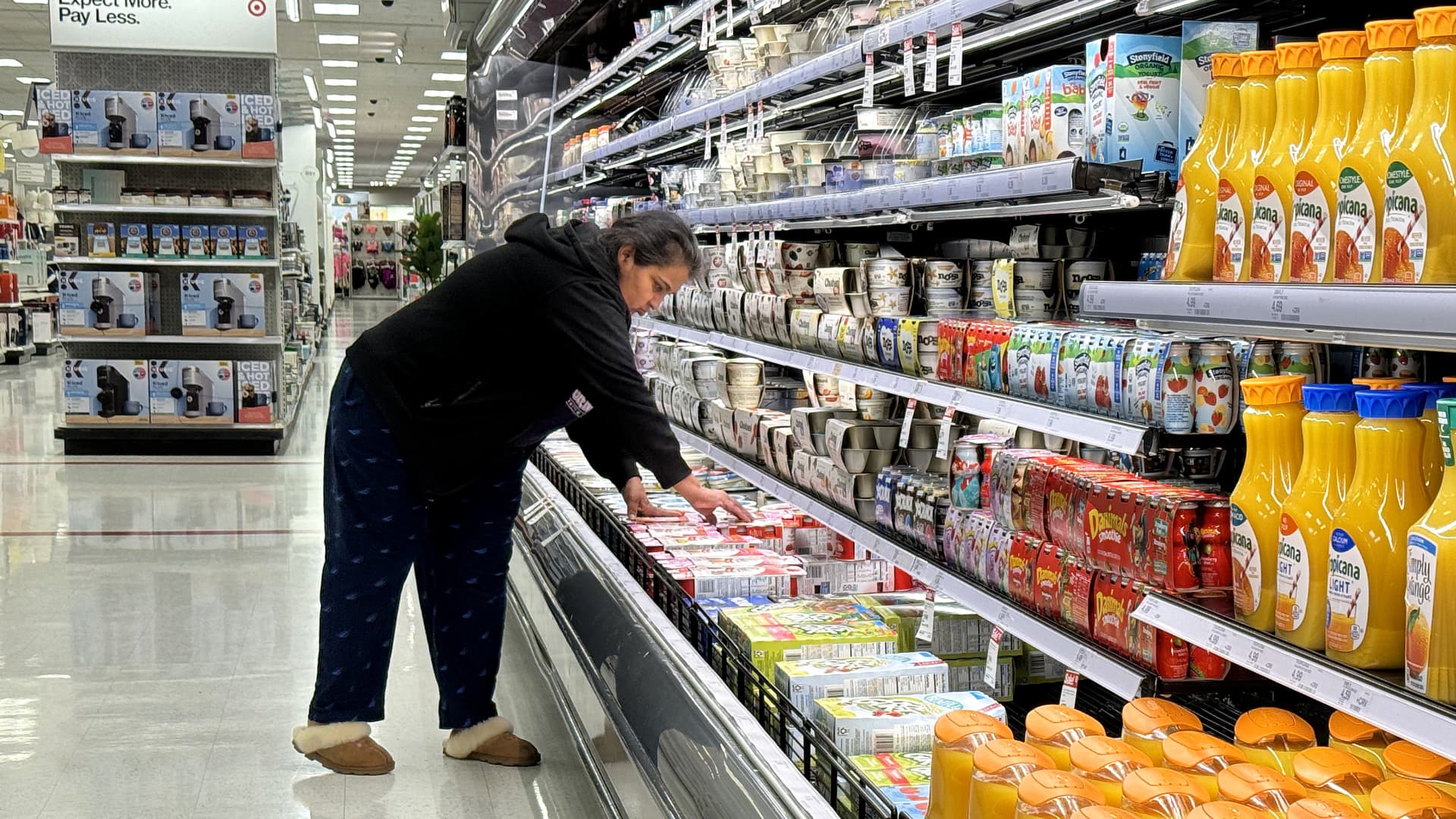Customers shop at a Costco store in Novato, California on August 31, 2023. Consumer spending rose 0.8% in July, beating expectations of 0.7%, according to a Commerce Department report. (Photo by Justin Sullivan/Getty Images)
Justin Sullivan | Getty Images News | Getty Images
Consumers are increasingly doubtful that the Federal Reserve will be able to meet its inflation targets any time soon, according to a survey from the New York Federal Reserve on Monday.
While the outlook for next year was unchanged at 3%, this was not the case in the longer term. In the three-year range, expectations rose 0.3 percentage points to 2.7%, while the five-year outlook rose even more, rising 0.4 percentage points to 2.9%.
All three are well above the Fed’s 12-month inflation target of 2%, suggesting the central bank may need to keep monetary policy tight for longer. Economists and policymakers view expectations as a key factor in assessing inflation trends, so February’s consumer expectations survey could be bad news.
“Longer-term inflation expectations remain well anchored, as reflected in a wide range of surveys of households, businesses and forecasters, as well as actions by financial markets,” Fed Chairman Jerome Powell said during testimony on Capitol Hill last week. “We remain committed to bringing inflation back to our 2 percent target and firmly anchoring longer-term inflation expectations.”
Headline inflation, measured by prices for personal consumption expenditures, the Fed’s preferred measure, rose 2.4% in January – or 2.8% at the core level if food and energy are excluded. Those levels represented progress in the Fed’s battle, although some economists have warned that the “last mile” back to 2% would be the hardest.
The Fed is expected to keep interest rates stable at its meeting next week. Market prices point to a cut in June, followed by potentially three more rate cuts before the end of the year, according to CME Group’s assessment of futures markets.
Other inflation metrics in the February survey gave cause for hope.
In particular, the outlook for rental costs fell to 6.1%, a decrease of 0.3 percentage points, the lowest level since December 2020. Housing remains the most stubborn component of inflation, but Fed officials expect it to ease as the year progresses and renters are negotiating new leases.
Elsewhere, the one-year forecast rose 0.1 percentage points to 4.3% for gas, fell 1.8 percentage points to 6.8% for medical supplies and remained unchanged at 4.9% for food. The outlook for household spending next year rose 0.2 percentage points to 5.2%.
Respondents also reported some concern about employment prospects. The perceived likelihood of losing a job in the next year rose to 14.5%, an increase of 2.7 percentage points.
Don’t miss these stories from CNBC PRO:
Source link
2024-03-11 18:20:46
www.cnbc.com









